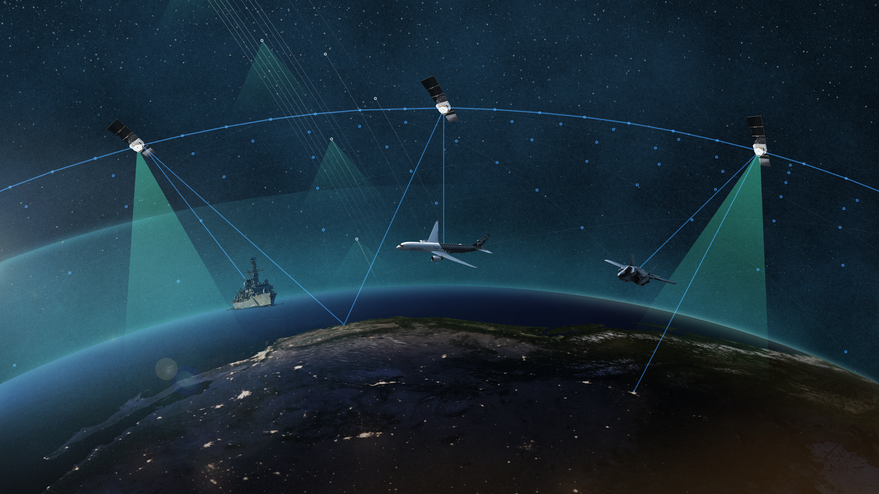TAMPA, Fla. — Intelsat is in talks with the U.S. government to help fund 17 medium Earth orbit (MEO) satellites to expand the operator’s multi-orbit broadband network.
CEO David Wajsgras said the company, which operates geostationary satellites but also provides low Earth orbit (LEO) services via leased capacity from OneWeb, is due to pick companies to build its own MEO network before the end of June.
“We’ve been looking at multiple manufacturing partners for the bus, the sensors and for some of the modules,” Wajsgras told SpaceNews in an interview, “and determining the exact construct of the team that would put those satellites on orbit in approximately three-and-a-half to four years from now.”
According to Wajsgras, customers are already lining up to pre-buy capacity from the constellation.
He pointed to strong U.S. government interest in an additional communications network for global redunancy, primarily on the military side but also for civilian agencies.
“We’ve been talking about the potential of securing a government contract to help support what we’re trying to do here,” he said. “There are a number of different ways that contract could be structured — they could also help finance the constellation.”
Since emerging from Chapter 11 bankruptcy protection in 2022, Intelsat has substantially reduced a mountain of debt that had held the company back from making significant investments.
Wajsgras said the operator reduced total debt of around $6 billion at the beginning of 2023 to $1.7 billion at the end of the year on a net basis, thanks partly to proceeds from clearing C-band spectrum in the United States.
“That obviously gives us a lot of flexibility on how we want to think about investments going forward,” Wajsgras said.
The company has recently made investments in Google spin-off Aalyria, which is developing optical communications technology, and terminal developers highSky and Greenerwave.
Direct-to-device investment
Wajsgras said Intelsat is also considering investing in a technology company he declined to name as part of a push into an emerging market aiming to bring satellite connectivity directly to standard smartphones and other devices.
“We’re very close to investing in a technology company that has proven out the technology for direct-to-device,” he said.
In addition to taking a stake in the company, this potential deal would see Intelsat fund development work to integrate the technology with its constellation.
“We will be using our engineering talent side by side with theirs,” he said.
“We believe our spectrum holdings are a differentiator here, which would essentially support us bringing this new capability to market in a different way than others are considering today.”
Wajsgras declined to give details, including what orbital regimes the company has in mind for direct-to-device services.
Related
Read the original article here
